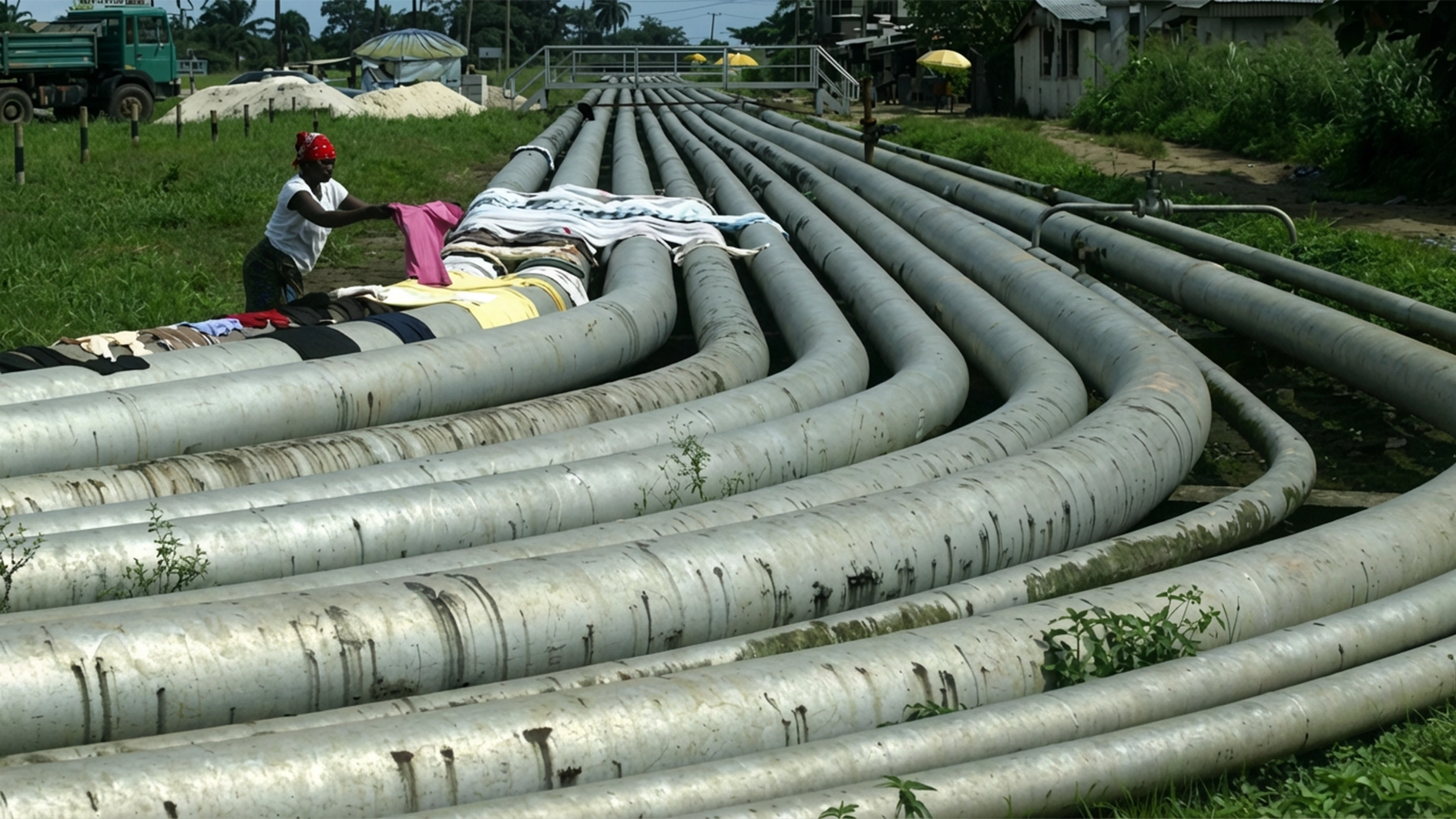Nigerian oil companies are recording stronger output and profitability, driven largely by assets relinquished by international oil companies (IOCs). Yet, sustaining the gains remains a key concern, even for players like Oando, which posted a profit before tax of N165.2 billion, reversing a N14.3 billion loss in the previous year, KINGSLEY JEREMIAH reports.
The transformation sweeping through Nigeria’s upstream sectorr is unlike any other moment in its recent history. As international oil companies (IOCs) shed onshore and shallow-water assets, mainly due to insecurity, theft, high costs and carbon intensity, local operators have stepped into the space with boldness, appetite and ambition that few predicted a decade ago.
Companies such as Oando, Seplat, Aradel, First E&P, Eroton (before its collapse) , as well as new entrants like Transcorp Energy, are redefining Nigeria’s oil narrative, when independent firms are getting more control, more decisive operatorship and, more importantly, more responsibility.
Independent oil and gas companies are rapidly reshaping Africa’s energy landscape, signalling a decisive shift in asset ownership from international majors to regional players. In Nigeria alone, Shell’s $2.4 billion sale to Renaissance Africa Energy, TotalEnergies’ $900 million divestment to Chappal Energies, Eni’s $800 million sale to Oando, ExxonMobil’s $1.3 billion deal with Seplat Energy, and Equinor’s $1.2 billion exit to Chappal Energies highlight African investors’ growing control.
The reserves tied to these assets hold an estimated 2.3 billion barrels of recoverable crude, marking the close of a century-long IOC dominance and opening a $2 trillion value opportunity for national operators. Similar shifts are occurring across other countries in the continent: Panoro Energy’s $180 million purchase of Tullow’s assets in Equatorial Guinea and Gabon, Savannah Energy’s $407 million acquisition of ExxonMobil’s Chad–Cameroon portfolio, ETU Energias’ $443 million deal in Galp’s offshore Angola stake, Assala Energy’s $628 million buyout of Shell’s assets in Gabon and Apex’s $45 million acquisition of six Egyptian concessions.
Unless sustained and well managed, the development, especially the “profit wave”, is still fragile, unevenly distributed, and extremely dependent on whether Nigerian companies can absorb complex assets acquired from global giants.
Oando’s recent financials illustrate both the promise and the pressure of this new era. Oando’s return to profitability marks the clearest demonstration yet that Nigerian operators can manage large, technically demanding assets if governance, liquidity, and execution align.
After battling years of litigation, shareholder disputes, debt overhangs and market cynicism, the company’s results for the first nine months of 2025 show a revived organisation as oil production soared by 59 per cent year-on-year to 38,121 barrels per day (bpd).
The company’s profit after tax went up 164 per cent to N201.3 billion, it recorded zero lost-time incidents across 16.8 million man-hours, saw improved liquidity, backed by new credit lines and an aggressive capital deployment, rising 178 per cent year-on-year.
The turnaround is closely tied to the integration of the NAOC joint venture assets acquired from ENI. These assets, 40 fields, 24 producing reservoirs, 1,500 km of pipelines, multiple flow stations, a major export terminal and a near-gigawatt power plant, represent one of the largest transfers of hydrocarbon infrastructure to an indigenous firm since the divestment wave began.
For Nigeria, the acquisition was not merely a business decision but a test of institutional maturity. And that is where many analysts are paying closer attention because what the majors walked away from were not just marginal fields; they left behind deeply complex reservoirs, challenging geology, and ageing infrastructure, often plagued by community tension and theft.
The crucial question, therefore, was not whether Nigerian companies can buy these assets but whether they can sustain them, optimise them, and fund their long-term development.
Stakeholders such as Chika Mbanugo, a business analyst, believe that Oando’s early signs are encouraging, particularly as production has stabilised, pipeline uptime improved, community relations strengthened, while receivables that lingered for years have been recovered and operatorship has offered sharper decision-making.
The company delivered solid production growth following the full integration of the NAOC JV assets, advanced its capital restructuring programme, and made progress on resolving legacy receivables.
The Group Chief Executive, Wale Tinubu, said: “Assuming operatorship has been transformational, giving us the agility to drive production growth and operational efficiency.”
However, the complexity of managing such assets at scale remains a persistent risk.
The long-term concerns for indigenous players are the need to replace ageing pipelines built in the 1970s and 1980s, revitalise wells that require expensive enhanced oil recovery, maintain power plants and gas-processing networks built for majors with deeper pockets and absorb hundreds of technically skilled staff while retaining the institutional knowledge required to keep production steady. This is where Nigerian operators typically struggle; not in acquisition, but in post-acquisition endurance.
The spotlight on Oando’s profitability can obscure the underlying financial engineering required to deliver it. The company embarked on an ambitious recapitalisation programme that many analysts believe is the single most consequential governance step it has taken since its founding.
With up to $300 million debt-to-equity conversion, N500 billion planned equity raise, $1.5 billion medium-term note programme, restructuring of dollar-denominated liabilities and proven hedging against currency volatility, there is a financial rebalancing for survival, which also reveals an uncomfortable truth.
The real cost of sustaining an IOC-scale asset base is measured not in millions, but in billions of dollars yearly. Oando’s five-year plan to spend between $2 billion and $2.5 billion is both ambitious and necessary, but it also raises the question of where the capital comes from in a high-interest, FX-stressed economy.
For success, governance remained key for most of the operators in sustaining lender confidence, investor patience and regulatory goodwill. This link between governance discipline and operational efficiency remains one of the least explored factors behind Oando’s resurgence and indeed behind the performance of indigenous operators more broadly.
The board has been strengthened with the appointment of a new Chairman and three Non-Executive Directors who bring decades of expertise in oil and gas operations, finance, and strategy. The creation of an Executive Director for Corporate Services and a Chief Compliance Officer role has improved internal control and oversight. These steps have not only clarified leadership responsibilities but also reassured investors that the company’s revival is being built on accountability and transparency.
While Oando’s headline numbers have grabbed attention, a deeper reading of the Q3 2025 results provides a more nuanced story. Revenue dropped 29.2 per cent year-on-year from N1.15 trillion to N820.66 billion. Yet profit before tax rose sharply from a N14.4 billion loss to N165.2 billion profit.
Coming, largely due to reduced trading of PMS and diesel as Dangote Refinery takes over domestic supply, Oando now has to rely more on crude trading and upstream output.
Looking ahead, Mbanugo says Oando’s priorities include deeper consolidation of the acquired assets, increased capital expenditure, deployment of new production technology and continued optimisation of uptime.
On diversification, he notes that Oando’s recently awarded 45 per cent operatorship stake in Angola can help the company hedge country-specific risks.
According to him, full-year production targets remain achievable if current momentum is sustained.
Mbanugo noted that with Dangote’s rising refining capacity now moving toward 1.4 million barrels per day, the downstream would remain unprofitable for petroleum product traders.
Oando’s entry into the Caribbean downstream market via Trinidad and Tobago, he believes, would expand its trading footprint, diversify risk and open new crude and product supply routes.
Commenting on the company’s results, Chief Executive of Flame Consulting, Orji Udemezue had said Oando’s performance represents “a remarkable growth,” which showed the strength of its integration of the recently acquired NAOC joint-venture assets.
According to Udemezue, the company’s turnaround is anchored on higher production uptime, more efficient deployment of assets and the successful recovery of long-outstanding receivables.
He noted that the shift from IOCs to a Nigerian operator has allowed for more responsive, locally attuned management.
“This performance shows that a Nigerian operator now fully understands and controls an asset once managed by an international company,” he said.
He added that improved security across operational corridors has further stabilised production, allowing Oando to optimise what he described as “a portfolio worth nearly a billion dollars.”
Alongside stronger domestic operations, Udemezue highlighted Oando’s expansion into Angola’s E&P market and its refinery bid in the Caribbean, describing both as signals of a company “evolving into a truly international oil player.”
With stronger numbers across revenue, gross earnings and PBT, Udemezue believes investor confidence will continue to rise. He acknowledged that Oando has not recently paid cash dividends due to ongoing capital restructuring, opting instead for share distributions, but noted that medium- to long-term investors can already “see the value being built.”
The company’s rising investment in fixed assets, he said, reinforces its commitment to long-term productivity. He pointed to the breadth of infrastructure acquired in the NAOC transaction, loading bays, extensive pipeline networks, gas flow stations and even a power plant, calling the deal “Africa’s oil and gas transaction of the year” for the scale of opportunity it unlocks. “The priority now is governance, team capacity and extracting full value from these assets,” he said.
While the downstream business has weakened due to Dangote Refinery’s market dominance, Udemezue believes Oando has made the right strategic shift back into upstream and pre-export trading.
He warned, however, that global oil markets remain volatile, shaped by geopolitical tensions.
As majors exit, Nigerian independents now carry over 50 per cent of onshore production.
This comes with structural challenges often absent from public debate. The cost of protecting pipelines, employees, assets and communities has effectively shifted from IOCs to indigenous firms, raising operating expenses and increasing pressure on margins.
Abandoned wells, ageing flow stations and decaying pipelines come with immense future liabilities. Few Nigerian companies are budgeting adequately for these obligations.
Indigenous firms are now expected to drive Nigeria’s gas transition under the Decade of Gas initiative, even though gas projects require much deeper pockets and longer payoff cycles.
Nigerian oil firms have a long way to go in addressing security issues in the Niger Delta, foreign exchange volatility, and high borrowing costs. Upstream projects require significant capital, and accessing affordable financing remains a hurdle for local producers.
Achieving production goals will depend on maintaining funding partnerships and consistent project execution. Operators must also manage market expectations carefully, as its share price still lags behind peers like Aradel despite its improving fundamentals.






